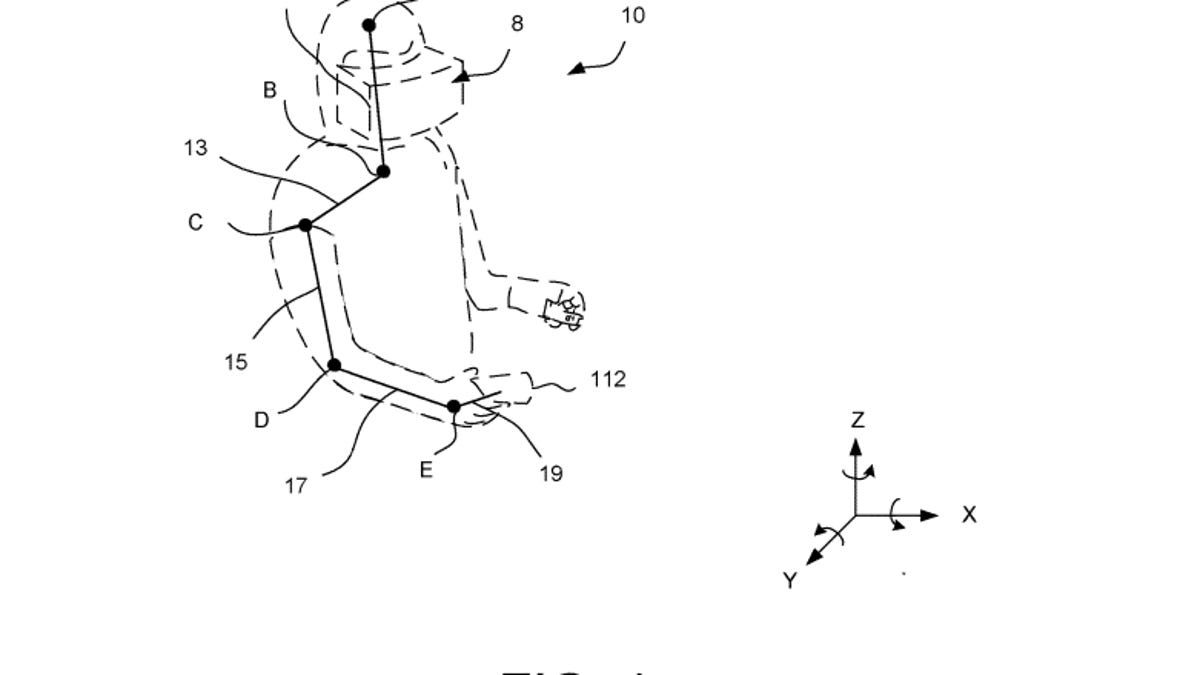Google VR controller patent adds location, orientation tracking
Addressing the problem of locating your hands in space.

Google's VR and AR designs have suddenly gained more weight now that its Stadia game platform has been revealed.
A Google patent application published Thursday gives us a look at the way VR systems could improve their understanding of where your hands are.
The patent, uncovered earlier by Patently Mobile, lays out a "VR Arm Model," which allows a system to supplement the tracking information for a controller's location in space and the orientation in which you're holding it. It essentially uses the rules of skeletal movement to estimate them relative to your head.
That's a neat application of Inverse Kinematics, which is used in animation to create natural or consistent-looking movements based on the rules of a "skeletal" system. In this case, the system knows where your head is and which way it's facing because of the sensors in the headset. And when you move your head it moves your shoulder joint, which moves your elbow which moves your wrist which moves your hand in standard ways along each axis.
Now that Google's announced its Stadia game platform, its VR and AR designs have suddenly gained a lot more weight. They can inform our understanding of Google's strategies for a system that may have a distinct impact on the future of gaming and how it evolves from today.

